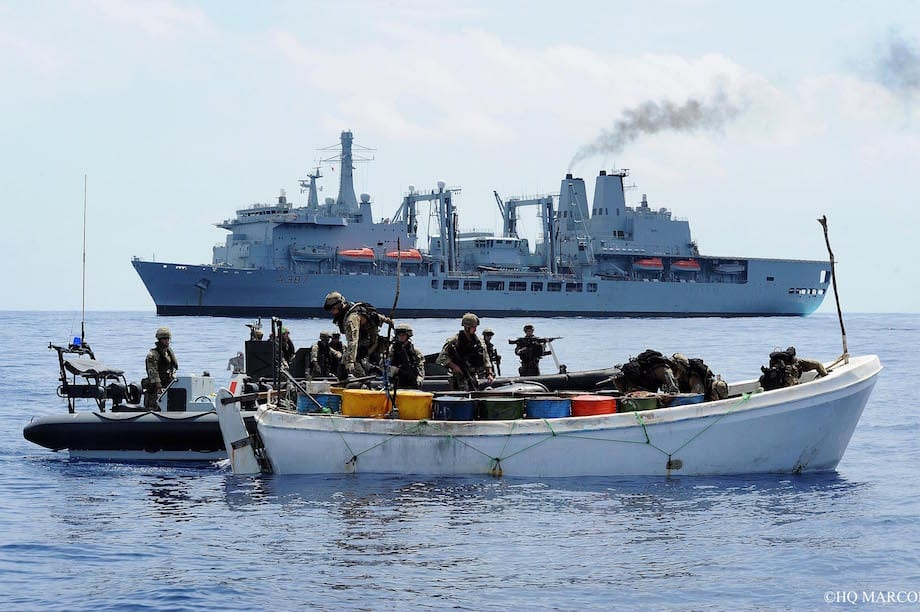Piracy Reporting Centre: Singapore Straits Emerge as Piracy Hotspot
Global piracy and armed robbery incidents against ships have risen sharply in the first quarter of 2025, with a notable 35% increase compared to the same period last year. The...

Photo: MARCOM/NATO
An informal survey of convicted Somali pirates is shedding new light into their motivations, attitudes towards piracy, and what has been the biggest deterring factor contributing to the reduction of piracy in the Gulf of Aden and Indian Ocean off the coast of Somalia.
The survey of Somali inmates accused of piracy on the high seas was conducted by the United Nations Office on Drugs and Crime with the maritime advocacy group Oceans Beyond Piracy and polled a 66 inmates at Hargesia prison in Somaliland, Bosasso Prison in Puntland, Somalia and Montagne Posee Prison in the Seychelles.
The survey found there is a clear economic basis for piracy, and any long-term solutions to piracy would require addressing this.
One prisoner reported going to sea because “My family is poor, so that’s why I joined the pirates.” One reason for leaving piracy was that they had enough money to retire, and many prisoners also pointed to illegal fishing as a reason for piracy and suggested that if it persisted then piracy may continue.
Prisoners who knew pirates who quit piracy indicated that family and community pressures were very important consideration for people leaving piracy, and counter-piracy messaging encouraging this may be valuable. Additionally, a prisoner reported “Prison is the worst place to be in the world”: with many prisoners specifically citing fear of future prison time as a deterrent.
International naval presence was frequently reported as a concern or a significant contribution to deterring pirates. The same was true for armed guards aboard vessels, although to a lesser degree than international navies, suggesting that a significant draw-down in naval forces may reduce a deterrent factor potentially contributing to the reduction in piracy.
Conor Seyle the Director of Research at the One Earth Future Foundation, commented: “This survey shows that international navies, family and social disapproval, and the deterrent effects of prison are all elements of suppressing piracy, while economic pressures and illegal fishing all push people towards piracy. This survey shows the need for a coordinated response rather than a one size fits all solution.”
Oceans Beyond Piracy notes that the survey and its findings should be viewed as what prisoners wanted to report to the UNODC, and not a wholly neutral survey.
Highlights of the survey findings are below:

Sign up for gCaptain’s newsletter and never miss an update

Subscribe to gCaptain Daily and stay informed with the latest global maritime and offshore news


Stay informed with the latest maritime and offshore news, delivered daily straight to your inbox
Essential news coupled with the finest maritime content sourced from across the globe.
Sign Up